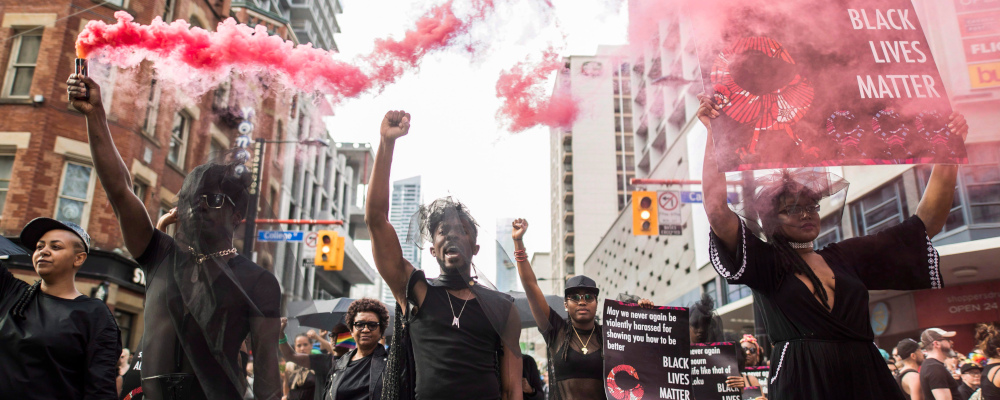Review of: Left is not Woke
Author: Susan Neiman
Publisher: Polity Press, 2023
When philosopher Susan Neiman decided to write Left Is Not Woke, friends warned her to avoid the word “Woke” in the title. They were concerned it might be taken as a move to the political Right and push her into the camp of Ron DeSantis, Rishi Sunak, or even Eric Zemmour in France. I suspect they were more worried that any attack on wokeness might mean banishment or cancellation by a political movement with all the characteristics of a religious cult. Neiman agonized over the title but stressed in the book that she was still a card-carrying socialist with all the proper credentials. But even that would not have spared her grief and ostracization if she were teaching at a North American university. She is safe for the time being teaching in Germany.
Most attacks on woke ideology usually come from the defenders of classical liberalism, such as Francis Fukuyama, who stresses free speech, the evils of cancel culture, and policies that relentlessly push the trinity of diversity, inclusiveness, and equity. Professor Neiman now confronts wokeness from the Left and how it has broken with traditional socialist ideals of universality, justice, and progress. Neiman isn’t willing to accept the suggestion that you aren’t Left if you’re not woke.
Her first concern is that wokeism has gone off the rails by abandoning the universal principle of worker solidarity. That concept was too general for today’s politically sensitive crowd. Wokeness pushed the idea that unfair treatment of minorities and the powerless had to be fought at the micro level of society. Throw in the concept of intersectionality and political oppression is now supercharged. It is no longer a question of traditional domination of the proletariat by the bourgeoisie. The hierarchy of power dynamics now includes men oppressing women, straight over gays, Whites dominating Blacks, White women over women of colour, the abled over disabled people, ad infinitum. A few years ago, American Black students at Cornell University demanded preferential treatment over foreign Black students since the latter represented a higher proportion of spots on campus. Any group or tribe can claim a special status regarding policies on compensation for past discrimination and grievances. The only groups that don’t qualify in this hierarchy of oppression are Jews, Asians, and rich men who are White.
Woke thinking compartmentalizes groups according to their identity rather than class oppression. Wokism breaks this connection by moving us into tribes disconnected from each other. And since everyone can claim membership to one group or another, most can claim victimhood.
Second, Neiman condemns woke attacks on enlightenment thinking. The Enlightenment wasn’t a Eurocentric invention of White men to oppress and justify the subjugation of other nations but a way to use reason to move away from religious and superstitious beliefs that held humans from their full potential. Enlightenment thinkers were some of the harshest critics of colonialism and slavery, including Rousseau, Diderot, and Immanuel Kant. Kant’s teaching was universal when he said that humans should never be treated as a means to an end. The Black scholar Olúfẹ́mi Táíwò—no apologist for the Enlightenment—insists we put Enlightenment ideas in their proper historical context. As he says, ideas must be historicized, not racialized. He even refers to the prominent anti-colonialist Frantz Fanon, who wrote, “The elements for the solution to the major problems of humanity existed at one time, or another in European thought.”

Her final objection to wokeism is the movement’s influence by the work of Michel Foucault and his concepts of power, progress, and truth. Foucault, considered the godfather of wokeism, promoted that power is the defining force between all human interactions and that truth is a naïve conviction of no value. Foucault had a profound contempt for reason and the notion that there was any improvement or progress in social interactions, an idea contrary to socialist thought. Even Noam Chomsky believed that Foucault was thoroughly amoral in his thinking. That isn’t hard to believe, knowing that Foucault endorsed sex between children and adults. For the Left, reason and freedom would liberate humans from superstition, prejudice, poverty, and fear. Foucault had no such faith.
Professor Neiman has written a brave book against a philosophy cutting through our cultural institutions. And she is right in her criticism. Finding a government, university, or major corporation that doesn’t follow a hiring policy dictated by woke protocol is almost impossible.
Liberalism was about centring the individual with freedom in personal affairs and commerce. Socialism added rights and entitlement to housing, education, health care, and a decent wage. Wokeness is about victims and victimhood with claims on society’s resources for past and present injustices. Who determines the injustices and compensation? Those are questions we aren’t allowed to ask. But the pushback is out there, and not just from Florida.
Recommended for You

Michael Kaumeyer: Polite decline: Canada’s aversion to being our best is holding us back

Howard Anglin: Lament for a Lament

‘A place where anybody, from anywhere, can do anything’: The Hub celebrates Canada Day

Peter Menzies: It’s no wonder Canadians are tuning out the legacy media




